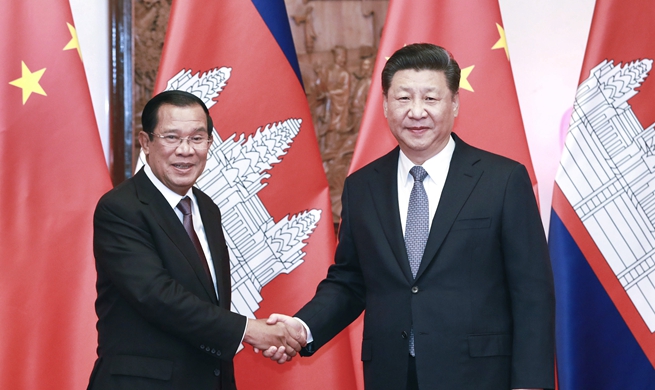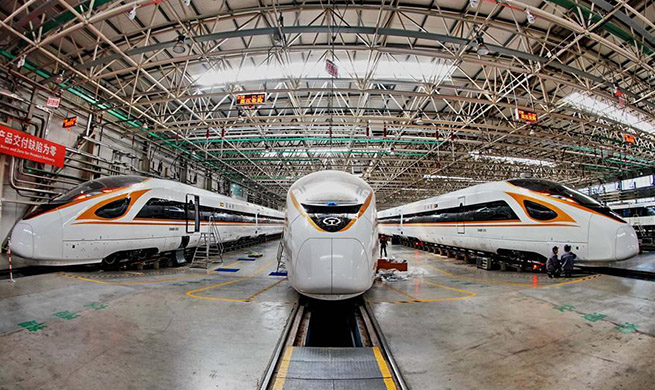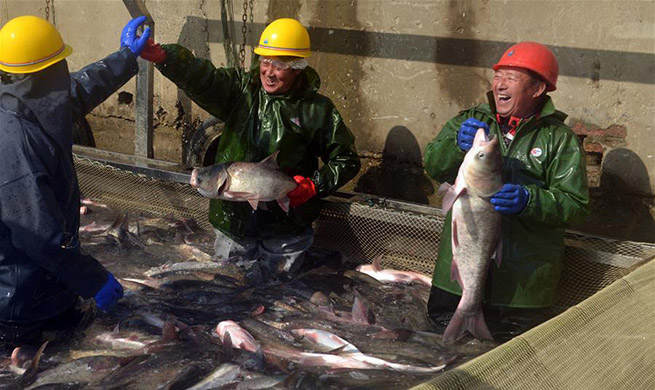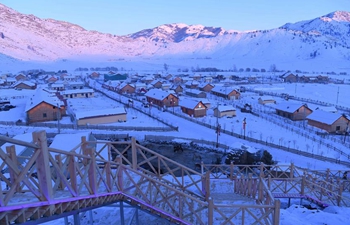GENEVA, Jan. 22 (Xinhua) -- The International Labour Organization (ILO) Global Commission on the Future of Work on Tuesday called on governments to commit to measures to address the challenges caused by an unprecedented transformational change in the world of work.
Co-chaired by South African President Cyril Ramaphosa and Swedish Prime Minister Stefan Lofven, the commission outlined a human-centered agenda based on investing in people's capabilities, institutions of work and in decent and sustainable work.
A Universal Labor Guarantee, social protection from birth to old age and entitlement to lifelong learning are among ten recommendations made in the commission's Report on the Future of Work.
The launch of the report coincides with the 100th anniversary of the Geneva-based ILO. Lofven was unable to attend the launch in Geneva.
At an ILO press conference Tuesday, Ramaphosa said: "In the 20th century, we established that 'labor is not a commodity'. In the 21st century, we must ensure it is not a robot."
"Targeted private and public sector investment, coupled with the right technology, can create millions of new, decent, sustainable jobs in the green economy, the care economy, infrastructure development, and rural areas," said the South African leader.
Ramaphosa said that the report recommends changes in corporate governance and conduct. These include an extension to stakeholder representation to make companies more accountable.
"Secondly, we need to create incentives for a longer-term outlook on success -- for example by ending quarterly financial reporting, incentives for long-term shareholding, and more inclusive bottom line reporting," he said.
ILO Director-General Guy Ryder said that the report outlines the challenges caused by new technology, climate change, and demography and "calls for a collective global response to the disruptions they are causing in the world of work."
He noted that artificial intelligence, automation, and robotics would lead to job losses, as skills become obsolete.
"However, these same technological advances, along with the greening of economies will also create millions of jobs -- if new opportunities are seized," said Ryder.

















